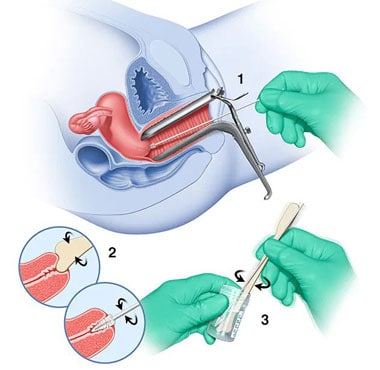A Pap test, also known as a Pap smear, is a cervical cancer screening test that looks for cancerous or precancerous cells on the cervix. Doctors typically examine cervix cells for the presence of a virus known as HPV, or Human Papillomavirus. The procedure is usually painless and minimally invasive.
What factors can result in abnormal Pap smear results?
The following are some of the causes of an abnormal Pap smear:
- Inflammation
- Herpes simplex virus (HSV-2)
- Trichomoniasis
- Human papillomavirus (HPV) (HPV)
- Dysplasia (abnormal cells; can be pre-cancerous)

What Is the Purpose of a Cervical Screening Test?
The purpose of a Pap smear test is to detect cellular changes caused by HPV in the cervix. Doctors can begin treatment as soon as cervical cancer cells are detected, avoiding major complications in the future. HPV can also be detected using Pap smear samples.
How Often Should You Have a Cervical Screening Test?
Cervical screening frequency is determined by a combination of risk factors and age, such as
- There is no need for a test if you are under the age of 21 and sexually inactive
- PAP smear test should be done for all sexually active women every 3 years upto the age of 65 yrs.
What Should You Expect During the Procedure?
The test will not take long and will not be painful. You must lie back on the table with your feet resting and your legs apart. A device known as a “speculum” will be inserted into the vagina to keep the walls open so that the cervix can be accessed. During the quick scraping, you may feel irritated and pushed. The sample would be sent to the pathology lab for testing.
Following the test, you may experience some discomfort or cramping. Light vaginal bleeding may also occur immediately following the test. Consult your doctor if the bleeding does not stop after 24 hours or if you continue to experience discomfort.
Dr. Deepika Doshi is a Gynecologist, Obstetrician, and Laparoscopic Surgeon (Obs & Gyn) in Borivali West, Mumbai. She did Pap smear treatments in Dhanvantari Hospital.
